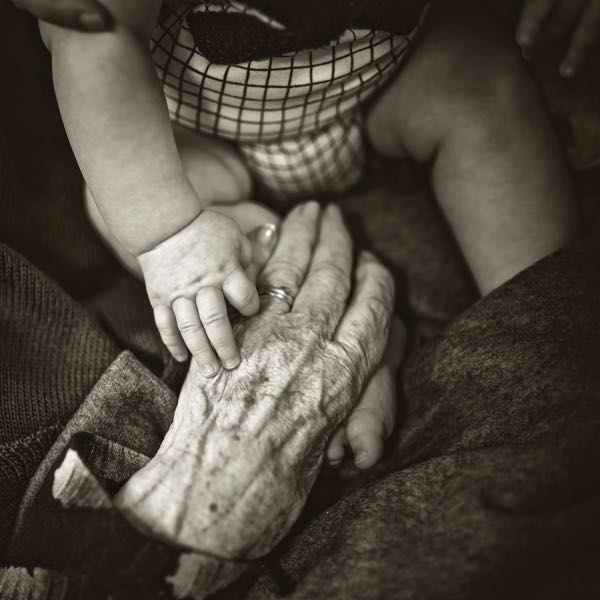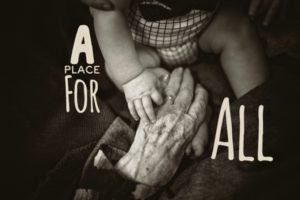
“A Place for all”, touts the YMCA, and indeed it is! The Y generations are every age.
Part of the historical uniqueness the local YMCA brings to its communities, is the variety of activities for people of all ages. The YMCA waves the banner of being the world’s largest childcare provider, while not neglecting services to our growing families. We are also the leading provider of teen programs but continue to give special attention to senior citizens, which we fondly refer to as our Active Older Adults. The Y is truly a place for all.
With over 2,600 physical locations across the United States, the YMCA employees approximately 20,000 fulltime staff and over 500,000 volunteers who engage 9 million youth and over 12 million adults.
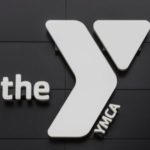 Discover more of how Y’s bring faith and fitness together.
Discover more of how Y’s bring faith and fitness together.
Explore the content in Faith & Fitness Magazine’s
On any given day, you can walk into a Y and find happy toddlers in child watch centers, youngsters splashing in pools as they learn to swim, and young mothers filing into workout studios to maintain their health (and sanity). You would find teens exploring learning opportunities such as art, dance and leadership classes, school age kids in safe spaces enjoying healthy snacks and homework help, next to smiling seniors stretching in a Silver Sneakers class.
Each group has brightly colored spaces and a variety of fun equipment, not to mention sections of rubber floored, iron-clanging spaces devoted to the most devoted. All of this is the hallmark of YMCA’s in America.

ENGAGE AT ANY AGE – CROSS THE GENERATIONAL BARRIERS
The Y of Greater Houston encourages its members to “Engage at Any Age”. These programs are designed to help their members stay active, engaged and informed when it comes to their health in spirit, mind and body. Opportunities range from water exercise, stretching classes, balance and flexibility classes and much more.
Many Y’s also offer socialization opportunities like Bridge clubs, Birthday celebrations, day trips, chess clubs, gardening projects, support groups, and holiday celebrations just to name a few.
While these people groups find many options to grow and thrive, too often they may not benefit from beneficial interactions with one another —intergenerational fitness. However, some Y’s are attempting to cross the generational barriers and stepping out of compartmentalized social interactions only.
TODDLERS AND TOE TAPPING SENIORS
Our friends at the Oakville YMCA in Ontario, Canada are raising the bar for all of us by intentionally implementing intergenerational program activities such as a Zumba party for all ages. Lively toddlers dancing next to toe tapping seniors in wheelchairs, at this event, provide laughter and fun for all.
Other opportunities are found in the childcare department, where they are creating health and wellness benefits for young and old. Such social interactions call for the older members to volunteer in the child care center by engaging in activities like reading stories, playing games, arts and crafts or simply enjoying snacks and smiles together.
“There’s a strong connection between isolation and health in older adults” says vice president of child care Lisa Rankin at the Oakville YMCA. “Adding intergenerational activities helps keep older adults healthy and the children develop compassion and respect for older adults” she adds.

COLLEGE STUDENTS AND THOSE WITH MOVEMENT DISORDERS ACHIEVE ROCK STEADY RESULTS
Here at the Frank P. Phillips YMCA, in Columbus Mississippi, the importance of young adults being involved in our Adaptive Fitness program is a vital component. Student interns from two local universities gain credit and volunteer hours at the Y. They are carefully paired with our older members with movement disorders such as Parkinson’s disease, stroke and dementia to provide useful partnership for all.
We are currently the first YMCA in our state to offer Rock Steady Boxing, a non-contact boxing program uniquely designed for individuals with Parkinson’s disease. Local college students from health & kinesiology and nursing departments volunteer at the YMCA in these classes.
“I truly feel that both parties’ benefit from our intergenerational efforts. The young people gain first-hand knowledge about dealing with many issues of our elderly. They learn patience, and even pick up some wisdom along the way. While the older program participants with limited mobility benefit from healthy young bodies nearby to assist them when necessary”, says Salem Gibson, the Adaptive Fitness Director. The young students possess an energy that brings a refreshing atmosphere and brings out the child-like joy in us all!
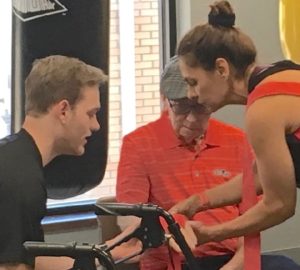
OTHER CROSS-GENERATIONAL EXPERIENCES AT THE FRANK P. PHILLIPS Y
- A class of 22 first graders singing, We All Bleed the Same by Mandisa at the National Day of Prayer event.
- The Jr. ROTC students professionally presenting the Flag and trumpeting our National Anthem at a Community wide Thanksgiving service in the YMCA gym.
- Watching community volunteers of all ages lend a hand with crafts, snacks and games to campers at “Camp with a Mission”; a week long adult special needs camp.
I am certain this only scrapes the surface of the multitude of innovative ideas that YMCA’s provide to their members and communities. So, let’s keep the dialogue open and ideas flowing as we are inspired by each other in this focus.
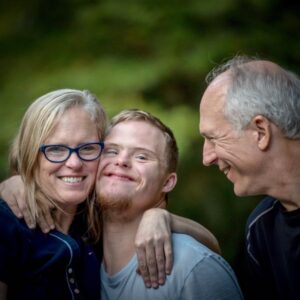
THE BENEFITS OF MAKING YOUR Y “A PLACE FOR ALL”
Senior Lifestyle Publication identifies some amazing benefits for intergenerational activities.
BENEFITS FOR OLDER ADULTS:
- 45% of Americans working in retirement say they want to interact with youth.
- Older adults learn new innovations and technologies from their younger counterparts.
- Older adults who regularly volunteer with children burn 20% more calories per week, experienced fewer falls, are less reliant on canes, and performed better on memory tests than their peers.
- Older adults with dementia and other cognitive impairments experience more positive effects during interactions with children.
BENEFITS FOR CHILDREN:
- In schools where older adults are regularly present, children showed more improved reading scores compared to their peers.
- Interactions with older adults enables development in social networks, communication skills, problem-solving abilities, and a positive attitude toward aging.
- Youth in intergenerational mentoring programs are 46% less likely to begin using illegal drugs, 27% less likely to begin using alcohol, and 52% less likely to skip school.
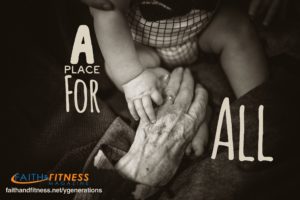
HISTORICAL MISSION AND GUIDING WISDOM FOR STRONG GENERATIONS
The YMCA was founded in 1844 in London England by George Williams. He was passionate about developing the Young Men’s Christian Association as a means of building in young men, moral character and spiritual fortitude. Bible reading, lectures and prayer groups were the original tools for doing this.
Now, 175 years later, we can see the wisdom of Bible scripture still admonishing us to “not only look out for our own interests, but each of you to the interests of others.” Philippians 2:4 Holy Bible. Intergenerational interactions provide rich opportunities to develop such attitudes and bring diverse groups TOGETHER to help dispel hidden fears and negative stereotypes.
The majority of people view the YMCA through the lens of swim and gym only, in my opinion, that perception is limited at best. That is why after over two decades of service to this great organization, I can confidently echo…
“We are more than just a gym!”
Y’s are a place for all. A place for strong generations to come together.
